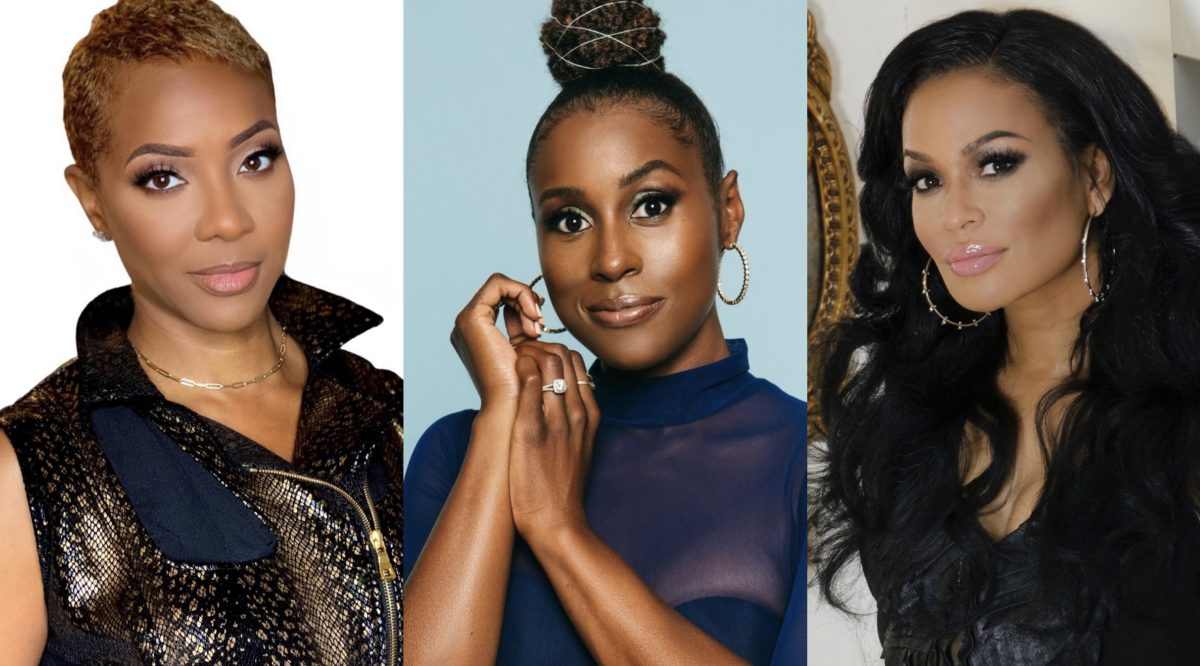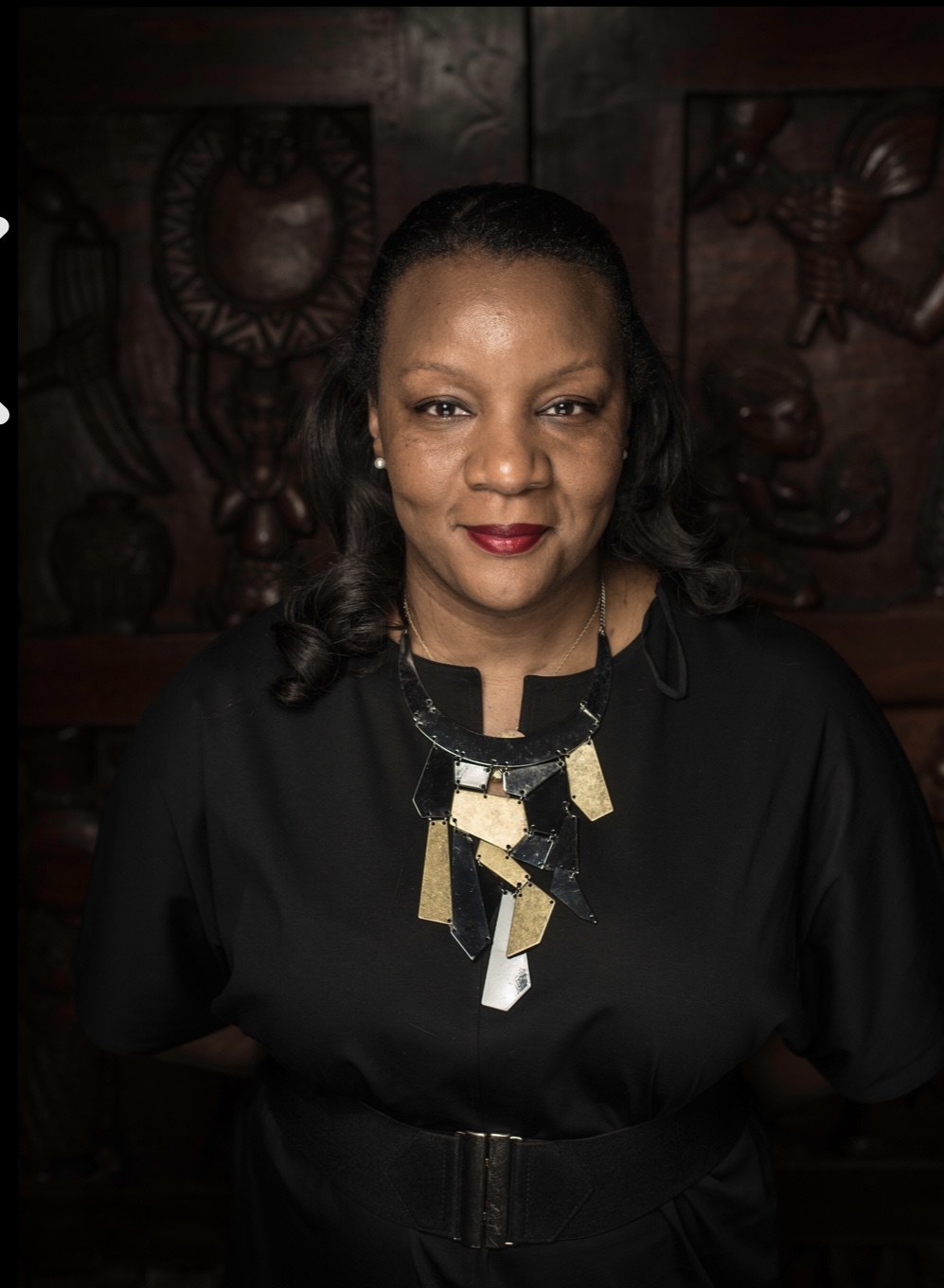
Source: Courtesy of Kennedy Center / Kennedy Center
It has been more than 50 years since the dawn of hip hop and several decades since it began dominating the global music landscape. And just like in almost everything else that is important in advancing culture and nations – education, policy, business, technology, medicine – women are continuing to be underappreciated and often discriminated against in this transformative genre.
A recent offense came as I was excitedly scrolling through an email I received announcing the lineup of the Kennedy Center’s Fall 2021 Hip Hop season. Focused on the Center’s For the Culture artists-in-residence – the legendary Philadelphia group, the Roots – the programming included music, literary and cultural events featuring Black Thought, Questlove, Rakim, KRS-One and Slick Rick, among other male creatives.
Before I’d even gotten through the whole email, I was texting screenshots to my girls – all of whom have served as influential journalists covering entertainment, culture, news, social justice and more since the 1990s. I was planning a trip to DC in my head, wondering if we could align our busy schedules, when suddenly it struck me:
There was not one female rapper in the lineup. Here we go, I thought. I wasn’t even really angry, just disappointed as usual by the treatment of women (and in the case of hip hop, mostly Black women) across all industries.
After poking around the Center’s website and finding some historical evidence of gender diversity in their hip hop programming, I was still bothered by no women hip hop artists being included in the fall 2021 line up. So, I called Simone Eccleston, the Center’s director of hip hop culture and contemporary music, and asked her what was up.
“Our fall season was about launching our For the Culture residency. The spring season will see a broader plethora of programming which encompasses both the Roots residency, as well as intentionally curated and designed programs for which women are at the helm,” said Eccleston, who initially was not able to share the spring line up. But when she was, it felt like someone dropping the high joker on your ace in a spades smackdown.
If you haven’t yet heard, the Kennedy Center just announced a fire spring hip hop season, which is centered around Black women. In addition to the return of DJ Beverly Bond’s Black Girls Rock Fest for the third year in a row, 2022’s programming will feature events through a new partnership with Issa Rae’s visionary production company HOORAE and from music icon MC Lyte’s I AM WOMAN: A Celebration of Women in Hip Hop.
BGRFest expands on the BGR Awards, which has honored women in hip hop like Missy Elliott, Queen Latifah and Spinderella, and draws global luminaries from former First Lady Michelle Obama to Regina King and Janet Jackson. In March, the three-day festival will include the Rock It Like a Girl! concert, an inaugural collaboration with the National Symphony Orchestra, empowerment speaker and DJ series, and a tribute by singer Ledisi to Nina Simone.
The four-day HOORAE x Kennedy Center Takeover festival will highlight music, comedy, film, television, and the talent of Black creatives, including the presentation of “A Sip” with Issa Rae. MC Lyte’s I AM WOMAN event honors the genius, diversity, and power of female emcees, while uplifting the creative contributions of women across generations through featuring Remy Ma, Da Brat, Tierra Whack, Monie Love and Yo- Yo.
“When I talk about the spring season as a beautiful testament to the genius of Black women,” said Eccleston, “and to the expansiveness of their creativity and to the ways they serve as cultural catalysts and create space for communities to be seen and represented, you’re going to see that.”
Eccleston, who has led the Center’s hip hop programming since 2017, was a wealth of information, noting examples of the “breadth and depth” of the contributions of women “directors, playwrights, journalists and scholars” to, not just the hip hop programming, but to that of the Center at large.

Source: Courtesy of Kennedy Center / Kennedy Center
She listed a 2017 theatrical production at the Center by hip hop artist-turned playwright and now Marvel Studios/Disney+ head screenwriter for “IronHeart” Shenaka Hodge and the Center’s several years of hosting the DC Hip Hop Theatre Festival, founded by the Apollo’s executive director Kamilah Forbes, who in 2018, presented a multimedia version of Ta-Nehisi Coates’ “Between the World and Me” at the Center.
Eccleston included amongst those women leaders the significant contributions of the five women on the Center’s 23-member Hip Hop Culture Council and herself as an example of gender inclusion.
“I don’t necessarily focus on numbers, but I focus on impact,” she said referring to the gender balance on the council. “For us, it’s thinking not about numbers, but about depth and being able to create deep conversations, being able to highlight the critical scholarship around women in the culture and important writers in the culture when we think about women like Joan Morgan and Kierna Mayo.”
“Each of these women has contributed programmatically, either by curating or participating in programs. They serve as invaluable resources to me, in terms of thought partnership. Overall, we are better because of them…As we work to getting back to normal levels of programming, we’ll definitely see an increased presence of women on the council.”
This will be good news to Dr. Aria S. Halliday, who was surprised that the Kennedy Center did “not have any women rappers in its fall 2021 line-up especially after the run that Black women rappers have had in the past two years,” said the assistant professor in the Department of Gender and Women’s Studies at the University of Kentucky.
“Continuing to cultivate new relationships throughout the community of hip-hop as it expands will be necessary to shake off the male-centric, misogynist, homophobic, and transphobic culture that has proliferated in it and in the U.S. largely. I’m excited to experience what the Kennedy Center will offer moving forward. I believe these offerings can shift the culture in more inclusive and generative ways.”
Eccleston has been on the case: “When we are looking at the arc of a full season from 2017-2018, 2018-2019, 2019-2020 and then what will be 2021-2022, there will definitely be a dynamic and profound presence of women in the culture being celebrated here.”
The Center’s spring hip hop season is proof that they are making measurable progress on their journey to becoming more inclusive in their programming. I’m here for it – and, hopefully, my girls and I can get our schedules aligned to be in D.C. for it this spring.









